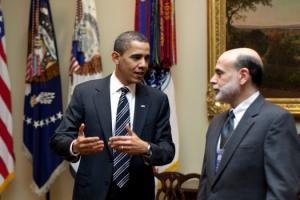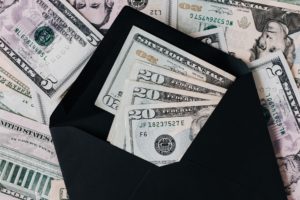By Michael Bowman
America’s central bank chief is urging U.S. lawmakers to expand the regulatory oversight for banks to include other large financial and insurance firms whose failure could imperil the entire U.S. economy. Federal Reserve Chairman Ben Bernanke spoke as Congress crafts legislation aimed at preventing a repeat of last year’s financial turmoil.
Scores of American banks have failed since the start of the financial crisis that helped plunge the United States into a deep and prolonged recession. But the firms most often blamed for precipitating the crisis were colossal investment houses, mortgage institutions, and insurance corporations, many of which required multi-billion-dollar bailouts or government takeovers to stay afloat.
While banks in the United States have historically been subject to robust government regulation, non-bank financial firms have been allowed to operate with a freer hand. Testifying before the House Financial Services Committee, Federal Reserve Chairman Ben Bernanke said this must change.
“The current financial crisis has clearly demonstrated that risk to the financial system can arise not only in the banking sector, but also from the activities of other financial firms, such as investment banks and insurance companies that traditionally have not been subject to the type of regulation and consolidated supervision applicable to bank holding companies,” said Ben Bernanke. “To close this important gap in our regulatory structure, legislative action is needed that would subject all systemically-important financial institutions to the same framework for consolidated supervision that currently applies to bank holding companies.”
Bernanke suggested the Federal Reserve is “well suited” to provide that oversight.
He also urged Congress to strengthen consumer protection from abusive or predatory lending practices. It was the mass-issuance of mortgages to consumers with poor credit ratings that led to a rash of mortgage defaults and home foreclosures beginning in late 2007. Most financial firms that invested heavily in those debts suffered crushing losses from which they could not recover on their own.
The Fed chief spoke amid word of higher U.S. consumer spending, which rose 1.3 percent in August – the biggest jump in nearly eight years. Consumer spending accounts for more than two-thirds of U.S. economic activity. U.S. incomes edged slightly higher, and construction spending was also up.
On a less positive note, the number of newly laid off Americans seeking unemployment benefits totaled 551,000 last week, up from 534,000 the previous week. Economists say unemployment will likely remain stubbornly high for a year or more after the country emerges from recession.
Photo credit: President Barack Obama confers with Federal Reserve Chairman Ben Bernanke following their meeting at the White House in April 2009.




